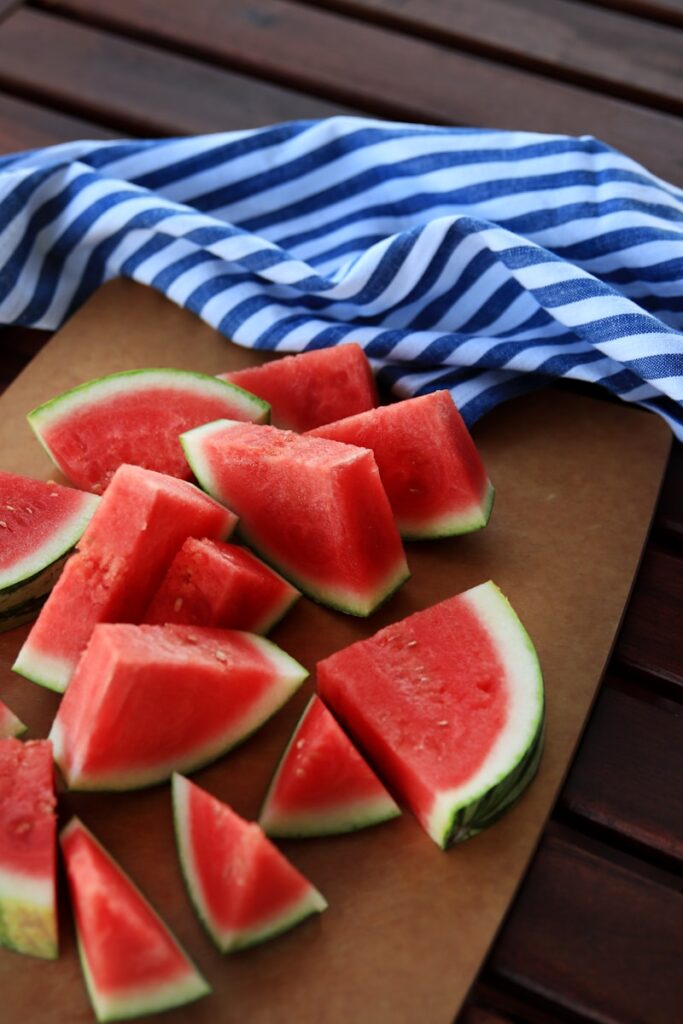Summer is associated with the invigorating flavor of watermelon, a fruit beloved by numerous individuals for its succulent sweetness and high water content. As temperatures rise and the longing for a slurpy bite of watermelon grows, it’s crucial to remember that not everyone can indulge in this seasonal delight without consequences. A recent series of case studies has shed light on the potential dangers of consuming watermelon for individuals with chronic kidney disease (CKD), providing vital insights into the importance of dietary caution.
What is Hyperkalemia
Approximately 14% of American adults are living with chronic kidney disease, a condition that impairs the kidney’s ability to filter blood effectively. For these individuals, what appears as a harmless treat can lead to life-threatening complications. The culprit behind these risks? Potassium. While potassium is essential for the normal functioning of all cells, regulating heartbeat, muscle contractions, and fluid levels within cells, an excess can be harmful, especially for those with CKD. The typical adult blood potassium level ranges between 3.6 and 5.2 millimoles per liter (mmol/L), with levels above 5.5 mmol/L considered high, a condition known as hyperkalemia.
Watermelons and Hyperkalemia
Watermelons, although seemingly innocent with their 92% water content, contain a surprising amount of potassium. A wedge of watermelon can hold 320 mg of potassium, and larger slices can contain almost one-and-a-half times the recommended daily intake for an adult. For individuals with impaired kidney function, consuming large amounts of watermelon can dangerously elevate potassium levels, leading to hyperkalemia.
The Annals of Internal Medicine recently published a series of case studies highlighting the risks associated with high watermelon consumption in individuals with CKD. One case involved a 56-year-old man with type 2 diabetes and stage 4 CKD, who experienced a loss of consciousness and was found to have a potassium level of 7 mmol/L after eating large amounts of watermelon nightly for two months. Another case involved a 72-year-old man with ischemic cardiomyopathy who, after drinking two glasses of watermelon juice daily for a month, suffered an episode triggered by his automatic implantable cardioverter defibrillator due to elevated potassium levels. Lastly, a 36-year-old woman on hemodialysis for end-stage renal disease developed persistent hyperkalemia after consuming large quantities of watermelon daily for three weeks.

Proper Potassium Intake
These cases underscore the importance of monitoring potassium intake, especially for people with CKD. The World Health Organization recommends adults to consume at least 90 mmol/day (3,510 mg/day) of potassium from food for its benefits to blood pressure and cardiovascular health. However, for those with compromised kidney function, the dietary approach needs to be more cautious.
Portion size, potassium content, and fluid intake are critical factors to consider when including watermelon in a kidney-friendly diet. Dietitians often recommend limiting watermelon to a 1-cup serving for individuals on dialysis, as a typical wedge equals about 3 cups, contributing too much potassium and fluid for a restricted diet. This smaller portion size significantly reduces the potassium content to about 180 mg, making it a more manageable option for those with kidney issues.
Beyond its potassium content, watermelon also provides nutritional benefits, including vitamin C, beta carotene, and lycopene, an antioxidant that may protect against cancer. When consumed in moderation and within recommended portions, watermelon can be a part of a kidney-friendly diet.
While watermelon remains a beloved summer fruit for many, it’s a stark reminder that nutrition is not one-size-fits-all. The stories of those affected by watermelon-induced hyperkalemia highlight the broader issue of dietary management in chronic conditions like kidney disease. It’s a call to action for awareness, moderation, and the tailored advice of healthcare professionals to navigate the complexities of nutrition and health, ensuring that the joy of summer’s bounty can be shared by all, safely.
Related posts:
Watermelon overdose cases reveal a deadly risk to compromised kidneys
Is Watermelon Safe for a Kidney Diet?





